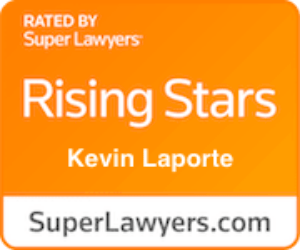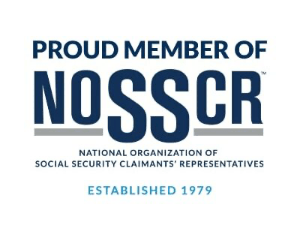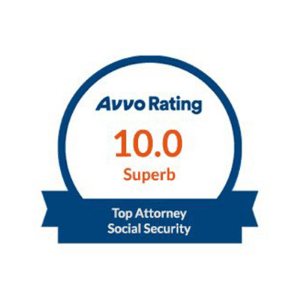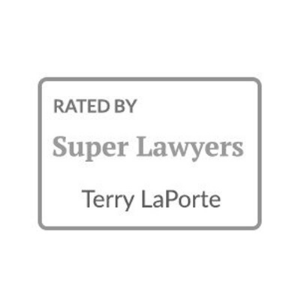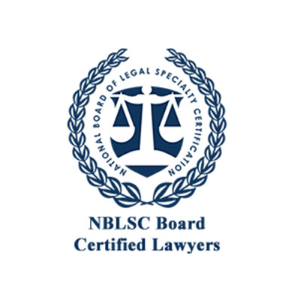How to prepare for a Social Security Disability Hearing
Here is the list of resources and links we have shared during our webinar:
- Create your account on the SSA website: https://www.ssa.gov/myaccount/
- How much does a Social Security Disability attorney cost: https://www.laportelawfirm.com/our-fees/
- COVID Remote Hearing Agreement form: https://www.ssa.gov/appeals/documents/21-158_COVID-19_HearingAgreementForm_RepresentedClaimantandRepresentative.pdf
- The types of questions asked at a disability hearing: https://www.laportelawfirm.com/blog/social-security-disability-hearing-questions/
- Download our ebook on how to prepare for a remote disability hearing via phone or video: https://www.laportelawfirm.com/ebooks-how-to-prepare-for-a-remote-disability-hearing-via-telephone-or-video/
- About LaPorte Law Firm: /about-us/
- Blog: What does a social security disability lawyer do
- Blog: Disabled adult child: benefits, eligibility, tips and consideration
- Blog: 9 signs you won or lost you disability hearing
- Blog: How to prepare for a disability hearing over the phone or video call
- Blog: Can 100% or partial VA veterans get social security disability benefits?
- Blog: How a marriage could impact your eligibility for SSDI benefits?
- Blog: Working while receiving social security disability benefits
Webinar Transcript
Kevin LaPorte
Introduction
Hi, welcome. My name is Kevin LaPorte with the LaPorte Law Firm. Today’s presentation is how to prepare for a Social Security Disability hearing.
In terms of the agenda, we’re going to go over just general background information about what Social Security Disability Insurance is, whether you need a lawyer to apply for Social Security disability — what is a disability hearing? Should you opt for an in-person or remote hearing option? How do you prepare for a Social Security hearing? We’ll go over some frequently asked questions, additional resources, and just some general background information about our firm at the end.
Today’s presenters are myself Kevin LaPorte, Terry LaPorte, the founding member of the firm, and Kelsey LaPorte, one of our attorney partners.
Just some housekeeping first, so this webinar is being recorded, and it’s going to be uploaded to the webinars section of our website. You can access it there at any time, you won’t be able to submit live questions as we go through this.
I’m going to take you over through a background about the Social Security Disability hearing process. Then I’ll turn it over to Kelsey to discuss the remote hearing options associated with disability hearings, and just some tips and strategies for how to have an effective remote hearing. And then finally, Terry LaPorte is going to discuss best practices at the hearing some of the common mistakes he’s seen, and just his general experience over his 40-year career representing clients throughout the Bay Area.
We’ll have a Q&A session at the end, we’ll try to answer some of the frequently asked questions we get. But if you don’t have your question answered today, please feel free to give our offices a call. Or you can submit an online inquiry, and we’ll try to answer as many questions as possible.
Again, you’ll be able to access this webinar, as well as our blog and a bunch of other useful resources at our website.
What is Social Security Disability Insurance Benefits?
Social Security Disability Insurance benefits is an earned benefit you paid into through your federal income taxes through W2 or 1099 employment. People who have a disability that prevents them from working, and if it’s severe, long-lasting disability, can get a SSDI benefit up until their full retirement age. And you may qualify if you’ve worked and paid Social Security taxes 5out of the last 10 years, and you’re completely disabled and unable to work due to an illness or an injury.
Now, it’s important to understand this is not like workers’ comp, where the illness or injury needs to be derived from a workplace accident. Social Security has to consider anything that affects your ability to work, physical health, or mental health.
Now, there’s a lot of rules that pertain to this system. But in general, in order to be eligible for disability, you have to be disabled from full-time work. So full-time work is eight hours a day, five days a week, full-time work, but Social Security considers substantial gainful activity. And importantly, your disability has to have lasted or be expected to last at least 12 consecutive months. That’s the duration rule. And in this system, it’s important to understand the duration rule, especially if you’re thinking about applying for the disability benefit.
So if you just stop working, give our offices a call, we’re happy to offer a free consultation with one of our attorneys to discuss this duration rule and how it might apply to your case. Because again, it’s important to understand it when you’re thinking about timing a Social Security application.
What is the monthly disability amount you get if you’re approved?
Everybody’s SSDI benefit is unique to them based on their work history, how much Social Security taxes they’ve paid in over the years through their work. And so in order to find out the best ways to create an account at the Social Security website, and that’s what it looks like in the upper right portion of the screen there, you can see as of October of 2023, the Social Security website has a my SSA account function where you can register online and find out what your earnings record is.
And importantly, you can download your earnings record, you can find out what your early retirement amount would be when you reach age 62, your full retirement amount would be and then also your disability benefit. So in the lower right portion of the screen there, you can see there’s a tab called more benefits in that myssa.gov account, where you can find out what your monthly disability amount would be, if you’re approved.
Now, it’s important to understand when you are approved for benefits, that is the amount that you get, there’s no way to change that necessarily, and there’s no partial or 50% disability. So it’s a complete disability all-or-nothing type program. And it’s important to create this account so you know what your disability amount is going in, just so you can plan and prepare and so there’s no surprises.
Do you need an attorney to apply for Social Security Disability?
Short answer is no, you do not need a lawyer to apply for disability. You don’t need a lawyer to file any appeals, or even to appear before an administrative judge. There’s no requirement that you have a lawyer, you can appear unrepresented.
However, we are admittedly biased here, but we believe that it is in your interest generally to hire an attorney in this system. And that’s for several reasons. One is especially at the hearing stage, it improves your odds of success.
So the Government Accountability Office conducted a survey that bore out this data where unrepresented claimants were less likely to be approved substantially than those who are represented at the hearing. Another factor is attorneys understand the rules and regulations that govern disability cases. We present legal theories to the judge about why our clients’ cases should be approved. And then also we prepare our clients for the hearing. That’s a very important part of the process.
We at the LaPorte Law Firm conduct pre-hearing practice sessions with our clients, so they know what to expect. And then we have significant experience appearing before the judges in the Bay Area. And so the hearing offices in the Bay Area are in San Jose in the federal building, Oakland downtown in the federal building in downtown San Francisco, and then in San Rafael. And so when our cases are assigned, we generally know what to expect at the hearing, and we can help our clients prepare for that.
How much does hiring a Social Security Disability attorney cost?
And then finally, hiring an attorney in this system is risk free. So there’s no out of pocket or upfront costs. Our fees are contingent on a successful outcome. So in other words, there’s no fee unless our clients’ cases are approved, and they’re owed back pay. And so if our clients are approved and owed retroactive payments, which comes in a lump sum, our fee is 25% of that lump sum with a statutory cap or limit of $7,200. After November 30, 2024, the maximum attorney’s fees are capped at $9,200. Our fee cannot be higher than that, no matter how much our clients are owed. And it’s a one-time fee. There’s no ongoing fee. Of course, our clients keep all their ongoing monthly benefits after that, because this system is regulated by Social Security. If you have an attorney, Social Security will deduct the attorney’s fee out of your retroactive benefits. There’s no out-of-pocket or upfront costs. That’s especially important, since this process can be very time-consuming, and financially stressful, because if somebody’s unable to work due to a disability. So that’s why these fees are structured the way they are.
If you have any questions about the fees, you can always just give us a call or visit our fees page on our website. Now, another question we commonly receive is what is a hearing?
How does the Social Security Disability Insurance application and appeal process work?
So it’s important to understand that many cases end up going to an administrative law judge at a Disability hearing. And in order to get in front of a disability judge, you need two prior denials. So when you file an application, if your application is denied, there’s an appeals process. So the first appeal is called a request for reconsideration.
And if that is denied, you request a hearing in front of an administrative judge. It’s important to note you have 60 days plus an additional technical 5 to appeal any unfavorable decision and an administrative judge can’t decide your case, unless you have two prior denials. Now we will get into this later on in the presentation, but you do have the option to elect to do a remote hearing via video, or telephone, you can waive your right to an in-person hearing. We’ll get into that in a bit.
Regardless of which option you choose, though, your attorney will be present with you at the hearing.
What happens at a disability hearing?
So, at the hearing itself, you will appear and testify to the judge about what impact your condition or disabilities have on your ability to work. And many clients do find that it’s nice to actually speak to an actual human, which the judges are, and to be able to give a longer explanation about what’s going on. It’s also a great opportunity for the judge to hear from disability claimants directly about how their condition impacts their ability to work. At every disability hearing.
There’s also a vocational expert who appears and testifies. Now a vocational expert will testify to the judge about jobs in the economy for people with limitations due to disabilities, they tell the judges what jobs allow, and what they won’t allow in terms of workplace restrictions, it can be a little confusing the first time you’re hearing a vocational expert testify. So that’s another part of our job is explaining to our clients the role of the vocational expert. And then we also cross-examine the vocational expert at the end of the hearing.
But it’s important to be aware, the vocational expert doesn’t have access to medical records. They’re not the judge, they’re not making a decision on anybody’s case, occasionally a judge will decide to hire a medical expert to testify. So a medical expert is somebody who has never met the disability claimant. But they’ll appear at the hearing and testify about the medical records in the case. And they’ll tell the judge whether they believe in their opinion, a person’s conditions meet something called a listing. So listing is the dictionary definition of a disability under the Social Security rules. And then if not, if they don’t think the record rises to listing level, they’ll tell the judge what kinds of workplace restrictions they think somebody would reasonably have. This doesn’t happen at every disability hearing.
And then also, if you’re represented, your attorney will cross-examine the medical expert, but it’s important to be aware, it’s the judge who’s making the decision, not the vocational expert, and not the medical expert.
Is it a public hearing?
And then finally, the hearing is closed to the public. So when you’re picturing a Disability hearing, it’s not a trial, or like anything you’ve seen on TV, or in the movies. It’s a closed hearing, because the judge is discussing sensitive medical records. There’s penalties against releasing any of the information related to the hearing. And there’s really not many people involved. So it’s just the disability claimant, the attorney, if there is one, the judge, the judges have a legal assistant who keeps track of recording equipment and takes notes, and then the vocational expert and a medical expert if they’re there. So really, there’s not very many people involved in the process.
The next part of this webinar will discuss whether you should elect to have an in-person or remote hearing. And Kelsey is going to take over for me, Kelsey, thank you very much. And thank you everybody for your time. Take it away, Kelsey.
Kelsey LaPorte
Thank you, Kevin. Hello, everyone. My name is Kelsey LaPorte and I primarily work out of our San Jose and Santa Cruz offices. I’m going to continue on by talking about your remote hearing options. So let’s continue with the presentation.
Should you opt for an in-person or remote hearing?
At the start of the COVID 19 pandemic in March 2020, SSA began offering disability claimants the option for telephone hearings shortly after they added in the option of conducting hearings over video via Microsoft Teams. As it turns out, OHO was pretty well situated for remote disability hearings. Since almost all case files are digital and remote hearing monitors were already being used to record the audio of an in-person hearing. While this was not ideal for all people who were anticipating in-person hearings.
Remote hearings allow the agency to avoid the types of delays that other courts were experiencing. And as of the time of this webinar, in October 2023, SSA still offers the option of having your disability hearing over the phone or video. In our experience, there are many advantages to agreeing to a phone or a video hearing.
What are the advantages of a remote disability hearing?
First, you will likely receive a much quicker hearing date. So if time is an important factor in your decision, a remote hearing is usually the best option. With remote hearing options, disability claimants can undergo hearings from the comfort of their home with quick access to things like medication or the restroom. If a claimant has mobility issues, they no longer need to put themselves through a physically demanding commute to a hearing office.
And importantly, the judges are conducting hearings from the comfort of their home. The comfort of the judges assigned to your case should potentially factor into your consideration. Remote hearings are also more convenient. Before SSA began offering remote hearing options, disability claimants were required to attend their hearings in person.
Most OHO offices like in San Francisco, San Jose, Oakland, those are located in federal buildings located in the downtown core of major cities. This means claimants were facing rush hour traffic, costly parking, public transportation delays, long security lines and other stressful hearing day variables. They save themselves the expense of expensive downtown parking garages, the possibility of a ticket issued by electing [for] a phone or a video hearing.
Some of our clients used to do a test run a few weeks before their scheduled in-person hearing so that they could better understand the best way to arrive at the hearing office at their scheduled time. So now that’s not a consideration that needs to be made. With a remote hearing, you can avoid the headache of the screening process to enter the hearing office through the federal security screening. Every disability attorney has a horror story about a claimant who misjudged the amount of time it takes to get to the hearing office and through the security line.
And if they forgot their ID or had an expired ID, they may have been denied entry by the rigorous federal building security screening process, which can be similar to TSA at an international airport. So you may avoid those headaches by opting for a remote hearing option.
Our office used to advise clients to arrive at least an hour early to avoid those headaches.
Should I opt for a remote disability hearing?
So here’s my take. After nearly three years of representing hundreds of clients at the remote Disability hearing, we do believe that remote hearing is a good option for many clients. But Bay Area OHO and San Jose, Oakland San Francisco and San Rafael are conducting fair and thorough remote hearings.
We have not noticed any change in approval rates post-pandemic. Well-established case law suggests that judges may not play doctor by attempting to diagnose disability claimants from the bench. A claimant’s medical record [is] the primary form of evidence, not a judge’s personal observation of a claimant’s physical or mental condition. A judge only listens to the claimants testimony, but they also review the medical records in each case to determine the level of disability. So it’s more important that your medical records accurately portray your condition. While in-person hearings were sometimes more personal by their nature, remote hearings are still fair and give due process under the regulations.
After we’ve weighed the very important issues of due process and fairness, we do believe that the benefits of remote hearings outweigh any potential drawbacks.
So how should you decide what hearing to attend? If you are waiting for your hearing date, you should consult a disability attorney if you are considering whether to agree to a remote hearing option. An attorney can advise you whether a phone or a video option is the best for you and we can also explain how each one works. A disability attorney also often appears in front of the same ALJs and so we have intimate knowledge of the daily operations of those judges and their local OHO office, including how to submit the proper forms, including the COVID Agreement Form and important medical records.
How to apply for a remote disability hearing?
So after you file your request for hearing, your local OHO will mail you a packet including this COVID-19 form. You should complete and return the form as soon as possible to avoid delays with scheduling. This form allows you to select the preferred hearing option. So it’s on this form where you explain if you want the phone hearing the video hearing or an in-person hearing. On the form, make sure to include the correct telephone number or email address when filling it out. Sign and date the form and then make sure that you return it to the assigned hearing office as soon as possible.
The hearing office can’t schedule the remote hearing until you agree to the phone or the video hearing. So this option and this form should be submitted well in advance of the hearing date. If you are represented, your attorney can also submit this form for you.
What are the best practices for SSDI phone hearings and video hearings?
Make sure that you’re ready at least 45 minutes before the hearing. Sometimes the judge may be ready to start the hearing early due to a prior cancellation. And so these judges and their staff can really appreciate flexibility from claimants and their attorneys. On the day of the hearing, have a plan in place, choose a good quiet place to attend the hearing. If you know there’s an area in your home with better cell service or Wi-Fi signal strength, make sure to take the hearing from that location.
Also, let family members and housemates know that you will need privacy during the duration of the hearing. If you had selected the phone hearing, SSA will call from an unrecognized phone number. So make sure that your phone does not block this important phone call before the hearing. Charge your phone or your laptop so that it can accommodate a conversation of at least two hours.
Most hearings don’t last that long. They usually last no longer than one hour, but some hearings can be delayed. And so you should factor in additional time for that delay, as well as any pre-hearing preparation that may be required between you and your attorney. With those delays in mind, be patient with technical difficulties.
If the phone call disconnects, make sure that you can hang up and wait for the hearing office to call you back. Don’t try to call OHO or your attorney because you want to make sure that your line is available for a phone call back.
How to prepare for a remote disability hearing?
Prior to your hearing, consult with your attorney about your medical records and be prepared to answer the judge’s questions about your medical condition. Be prepared to answer questions also about your past work, which is any work you performed in the last 15 years. You should be aware of your alleged onset date, which is the date that you told Social Security that you became disabled, the significance of that day, and why you feel you’ve been unable to work since that alleged onset date.
You should also generally be familiar with your treatment history and current medications. You’re not expected to know exact treatment dates, legal terms, or medical terms, but you should have a good understanding and a good explanation of the way the disability affects you.
During the phone and the video hearings, make sure to avoid crosstalk. So wait for the judge or the attorney to completely finish their question before you begin each response. The hearing is being recorded. So they need to make sure that there aren’t any issues with the transcripts. And if there are, the hearing needs to be rescheduled. So that’s why you should avoid the crosstalk.
In addition, make sure that you’re attentive throughout the course of the hearing. Even if your part of the testimony is concluded, the judge can sometimes return to you with any clarifying questions. So that’s the explanation that I have for you on remote hearing options.
I started to talk a little bit about hearings in general. So I’m going to hand this over now to Terry and he’s going to further explain the hearings and best practices and what you should expect during them in general.
Terry LaPorte
Thank you, Kelsey. Hello, my name is Terry LaPorte, and I’m going to be speaking with you today on how to prepare for a Social Security Disability hearing.
How to prepare for a Social Security Disability hearing?
The first thing I would emphasize is that you can greatly increase your chances of winning at the hearing by what you do in the months and sometimes years before the hearing. We’ve noticed that since the pandemic, there’s been a deterioration in the quality of medical evidence in our cases, because since COVID, medical care is often provided in remote appointments by phone or video. This can keep the doctor from doing a detailed hands-on exam of, in a physical case, your range of motion, weakness in muscles, or in mental health cases, a good mental status exam with comments on appearance or observed findings of your mood or cognition deficits.
So if you can, during the months and months you’re waiting for your hearing, go to the doctor if you have a choice rather than opting for a remote medical appointment. Also, be sure to take every offered laboratory blood test, MRI, X-ray, [and] neuropsychological testing of your cognition or mood, because they can provide objective findings that will explain why you’re so limited or as symptomatic, emphasize abnormalities and objective testing. So be sure to get all the tests done relevant to your condition.
Also be a compliant patient. You want to be sure that your doctor and the judge reviewing your case don’t see you denying prescribed or offered tests, treatments like surgeries or physical therapy or mental health therapies. The judge wants to see that you’ve undergone all of the treatment you could. It shows the severity of your health problems if you try everything offered, even inconvenient, or expensive or sometimes even painful treatment, if you can.
Also, be sure to tell your doctors about the effects of your health problems on your ability to do household activities like cleaning, grocery shopping, or your ability to enjoy hobbies, or your favorite recreational activities or interests. For example, I think it’d be — can be — compelling to the doctor, and then to the reviewing judge, when their doctor writes it down. If your illness causes you to stop playing your monthly poker game or [being at your] book club, or if you give up your 49ers season tickets, because you can’t sit that long. If you have to recline or lie down during the day because of back pain, or sleep or rest because of fatigue or recurring migraine headaches, tell your doctor so that it might be included in the medical record. And so the judge isn’t seeing this for the first time at the hearing when you testify, not having seen those issues described in your lengthy medical record leading up to the hearing itself.
We know as your attorneys, and the judge understands that you’ve been denied twice by Social Security, that it’s often two to three years since you last worked when you had to give up your job, and then you’ve been waiting perhaps a year since you requested your hearing. You will be given at least 75 days’ written notice of the date and time of the hearing. During that time, we learn the name of your assigned judge. And most commonly, we’re familiar with that judge from our experience with the person from prior clients. So what’s the target? What’s the standard of disability the judge is considering?
What does the Social Security Disability judge look at to rule your case?
The judge is deciding your ability to function and be productive in a work setting over an extended period of time. The minimum requirement is one year, 12 consecutive months. But often, it’s been two years or more since you had to stop work. For that reason, at the hearing, you need to be ready to emphasize the health problems that have affected you over a long period of time, especially the ones that caused you to go off work in the first place. And not so much the effects of a car accident you had three months ago or a new diagnosis made in the last weeks or months prior to the hearing.
The standard is full-time, work not part-time. You don’t have to be housebound or deceased to qualify, although sometimes Social Security makes you think that’s the rule. The issue really is the ability to perform sustained 8 hours [a] day, 40 hours a week, or its equivalent scheduled jobs.
So prior to and during the hearing, you and your attorney should go over and emphasize in [your] testimony your typical days over the months and years since you stopped work, including the need for daily rest periods or naps recurring or need to lie down during typical 9-to-5 periods of the days and the months since you stopped work.
At every hearing, the judge will tell you that he or she had nothing to do with the prior denied decision. And that’s true. The judge has an independent power to approve your cases in whole or part or to uphold the denial decision made twice prior to your hearing. I like our clients to consider the job of a disability judge in order to do their job.
A judge has to make a decision after reviewing a tremendous amount of information. Most judges review your entire file twice before the hearing: once, the first time when it’s assigned to them, and then just prior to the hearing. And that’s why our firm files written briefs in every case prior to the hearing so that the judge before the hearing, before we start, has a preview of the best legal argument and we can cite the strongest medical evidence and medical opinion that supports your position at every hearing. The judge will have at this ability [to] have [an] electronic file in front of them on their computer record, so will we as the attorneys. The file contains every piece of medical evidence from the time that your disability began,. The file also contains detailed work histories, your earnings, record, sworn statements and forms from you and third parties like your family members, and all of the read up relevant medical records and medical opinions from your treating doctors and the Social Security doctors.
Often a file contains thousands of pages of evidence. The faster a judge can get through the background, the more you’ll get your chance to explain the important details of your situation with help from your lawyer.
Judges are human beings like the rest of us, except they hold more power than the average citizen. And every day they make decisions that have a huge impact on your lives. You want the judge to be happy, and you want to leave a good impression by providing direct answers to questions without forcing the judge to redirect you. Now assume that the judge in every case has another hearing scheduled right after yours. And time is short. For that reason, we practice with you the questions you should expect to answer in the hearing and our client meetings. You need to be prepared to listen carefully to the questions from your attorney and the judge and answer only the question unless you then ask for explanation. The entire hearing is likely to last only 30 to 60 minutes at most. And perhaps you’ll be answering questions for only 20 to 30 minutes, with the remainder of the hearing taken up with a judge and your lawyer questioning a vocational expert, sometimes a medical expert. And often the lawyer provides verbal presentation of your case at the request of the judge. Now, of course, be honest, you got to tell the truth.
A typical reason for a person’s testimony to be considered negatively by the judge is for the judge to think that you’re exaggerating your symptoms, [you] are not being as honest about your daily activities. Again, you’re going to be under oath. So you’ve got to tell the truth under penalty of perjury, which is, of course, another good reason you need to be honest. Keep in mind, the purpose of a hearing is not to trick you or to get to you to admit a bad fact. Rather, a hearing is your opportunity to explain your situation and provide the judge with an insight into your daily life that’s not obvious from merely reading evidence in the record.
People receiving disability benefits are able to do some driving, cooking, cleaning, shopping, and perform many basic daily activities of living. Just because you can do some basic activities in a typical day does not mean that you’re able to work full time, eight hours a day, five days a week on a sustained basis. When you’re honest with the judge about acts, activities you are capable of doing, you establish credibility, and credibility can make or break your case. If you don’t understand a question, just ask it to be repeated.
What do I need to know or prepare before I present myself before the Social Security Disability Judge?
You don’t need to know medical or legal terms at the hearing. And it’s okay if you can’t remember a specific piece of information. I have many clients who are nervous for the hearing and their mind map [goes] blank. The judge understands that it’s typical. It’s not TV or the movies. And people can be human as they respond, to do the best they can in response to questions. If you don’t know the answer to a question, it’s okay to say that the judge will move on or ask the attorney to provide the answer. Sometimes our memories fails.
What information do you need to prepare? It’s helpful to know key dates such as the date you stopped work, which is what Social Security calls the alleged onset date of disability. Prior to the hearing, think about your answers to key questions. Why did you stop working at your most recent job? Why do you think you’re disabled and unable to work? And in that light, I like to have my clients list medical conditions that they think [are] very strict — it restricted the kinds of activities they can perform, and then be ready to amplify as I ask questions, explaining how it — how these problems affect you on a day-to-day basis.
Specifically, I would ask how your conditions would prevent you from returning to the job you’ve performed in the past. And by that I mean “not my back hurts too much” or “I can’t concentrate,” but how the job required you to sit a long period of time and you can’t do that anymore, or concentrate on detailed computer work or blueprints, and your present cognitive problems preclude you from doing that, [and that] would cause you to make mistakes and doing a job that you know how to do.
Common questions for people with physical impairments
Commonly, you’re going to be asked how much weight and pounds you can lift and carry occasionally, or frequently, over an eight-hour day? How long can you sit or stand at one time? With breaks? How long could you sit? Or stand total reliably over an eight-hour day? Do you require an assistive device like a cane or walker? If you use a cane on a daily basis? And what hand do you hold the cane that will go to your ability to carry items? Since you have to use the cane, do you get help performing cooking or cleaning or chores or errands, whether that’s from a family member or a neighbor or housekeeper?
And why do you have good days or bad days? There are some conditions that are episodic in nature, so that on a recurring basis, the person could work most days of the month, but might have to miss work one to two to five days a month because of, for example, seizures or bipolar impairment or other conditions like migraine impairment.
So it’s important to bring up your good days and bad days, how often you have them, how you are limited on your bad days. And why that would keep you from doing the type of work that you’ve known how to do.
Finally, has your health gotten worse, better, or stayed the same since you stopped work? Since it’s going to be a long period of time, from the time you stopped work till the time of the hearing, you want to talk about the trends. You want to admit those conditions that have maybe gotten a little better because you had a surgery or treatment. But then explain why that level of improvement or other health problems you have in combination still keep you from working.
Common questions for people with mental health impairments
For example, how does your depression or exam anxiety or PTSD impact you on a day-to-day basis? Do you have anxiety or panic attacks that keep you from functioning on a recurring basis? Do problems with memory or concentration affect your daily activities? Or would they preclude the type of work you did in the past?
Have you used illegal street drugs or alcohol? How about marijuana? We could do a whole session on the issue of substance use and how that affects Social Security Disability. It’s a question that’s commonly asked. And we want you to be ready for that and we can explain prior to the hearing how those kinds of answers would or would not affect your entitlement.
Thank you for taking the time to listen to our presentation. If you have any additional questions that were directly answered, you can contact our firm and receive a free consultation.
You can also email questions to our website, and we’ll be happy to respond with one of our representatives taking the time to address any questions you have. Thanks!
You are not alone.
We are here to help.
The results you deserve
With over 40 years of service, LaPorte Law Firm has won thousands of claims and appeals for our clients.
Superb representation from Mr. Terry LaPorte. He is professional, brilliant, respectful, and a very kind human being. He is experienced and answers your questions patiently. He explains things in simple terms, making the confusing and complex disability process much easier to understand. His staff, including Maria, are helpful and offer outstanding service. Mr. LaPorte’s law firm is the best.
Reyna R.
Terry LaPorte is the best. When I was looking for a referral, every knowledgeable attorney referred me to Terry (and only Terry). He worked hard for me, was an excellent advocate, and I completely trust his judgment. He is a kind and decent man, too. I’m grateful I found him.
Sam H.
LaPorte Law Firm is awesome. They stood by me until my case was finished and we got what was owed to me. I can’t thank them enough. I would totally recommend them to anyone in need.
Sue Sarno
How it works:
- Complete the form so we can learn more about your situation.
- We will reach out within 48 hours to schedule your free, no-obligation consultation with an attorney.
- If your case can be pursued, we’ll start working on it.
- We only get paid if your case is approved.
How we can help:
- Free case evaluation by an attorney
- Social Security Disability Insurance application
- Social Security Disability Insurance appeal
- Disability hearing preparation
NO FEES UNLESS YOU WIN.
Award-winning service
Equipped with years of experience and thousands of successful cases, LaPorte Law Firm is the leading disability attorney in the Bay Area, and we have the awards and certifications to prove it.
